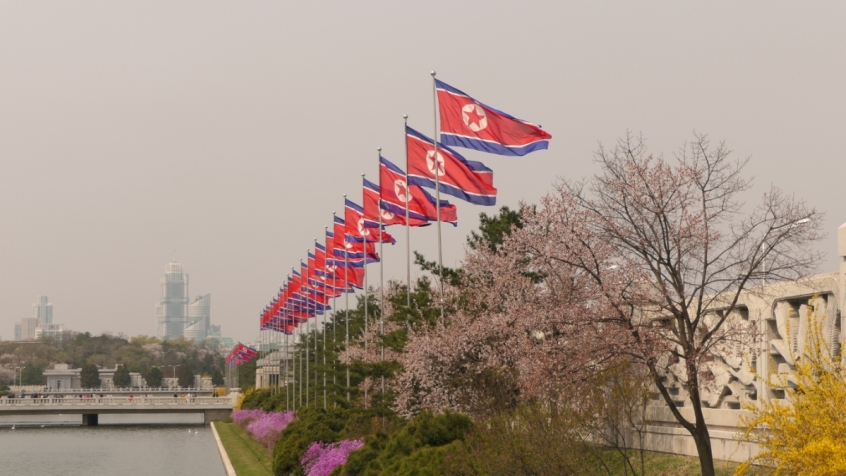
Christian women are acting as "agents of resistance" against the Communist regime in North Korea, according to a human rights organisation.
Korea Future launched its latest report, "Religious Women as Beacons of Resistance in North Korea", on Thursday.
Using their membership of underground churches, Christian women are spreading the faith and challenging the regime, the report found.
Through their networks on the margins of society, women who convert to Christianity "challenge the authority of the state's control over women's bodies and minds and empower other religious women to become agents of resistance", it says.
One witness interviewed for the report said: "The underground church members in North Korea were believers who had converted in China.
"They already knew about Christianity, including hymns and the Bible.
"Most members were women who had been trafficked and sold into forced marriages with Chinese men and later escaped."
Korea Future investigators interviewed 237 survivors, witnesses, and perpetrators of religious persecution who fled the Marxist dictatorship into democratic South Korea.
They documented 140 cases of Christian women being imprisoned, 33 of torture, 11 of "refoulement" (Christian women being forcibly returned from China to North Korea), five of forced labour, and one case of sexual violence.
Christian women who are arrested experience "more egregious" violations of their human rights than followers of fortune-telling cult Shamanism, the report found.
The regime imprisons Christians in the more brutal "political camps" but tends to send the followers of other religions to less severe labour camps.
The report says "the absolute denial" of the right to religious freedom forces many Christian women across the North Korean border into China.
"Engaging in illicit trade or employment, these women can receive support from ethnic-Korean churches or underground missionaries who provide religious literature, symbols and other forms of information about the religion.
"Upon their voluntary return or refoulement to North Korea, women who are suspected of adhering to Christianity fall under the surveillance of North Korea's intelligence agency, the Ministry of State Security, which proactively gathers information on religious women, including those who cross into China, through a network of informants," it says.
"Prevailing customary forms of gender-based violence, including torture and other cruel, inhuman, or degrading treatment or punishment, such as physical beating and verbal abuse, are magnified for women in detention due to their religious identity."
Religious women in North Korea also experience "entrenched patriarchal attitudes" in society, and can fall victim to both a culture of "violence against women in public and private life", and "a government that has actively discriminated against women through policy and practice and persecuted religious adherents".
Despite the oppression they experience, Korea Future says "religious women have begun to deploy their gender and religious identities as platforms for personal and local change beyond the limits of the state".
"These actions come at great risk. We have documented the executions of women and girls who exercised their right to freedom of religion or belief," the organisation said.
"In this context, it is remarkable that religious women have emerged as agents of change in North Korea."













